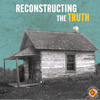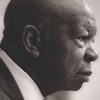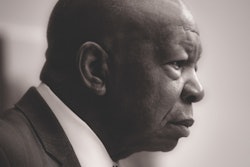Since 2020, it seems as though anyone with any sort of leadership role in higher education has pledged their anti-racism bona fides. But actual anti-racist leadership is a different and trickier matter. On Friday, at NCORE, the National Conference on Race and Ethnicity in Higher Education, administrators looking to walk the walk gathered for a three-hour workshop titled “Anti-Racist Leadership: What Does it Take?”
 Dr. Tanika Byrd, a professor of communication at Cosumnes River College
Dr. Tanika Byrd, a professor of communication at Cosumnes River College
It was a revelation that took some processing for the attendees, including Heather Mayer, associate dean of teaching and learning at Everett Community College.
“It was helpful and hard [to hear],” she said. “I do see a lot of the white savior complex of ‘I’m going to come in with the answers and help everybody else. It helps to decenter that, but it’s newer to me, and I’m still going to be wrestling with that.”
Laflam said that truly absorbing this message and finding the reason that one is doing anti-racist work for oneself is a process that takes time and that it took her roughly three years to fully internalize it.
In the meantime, the workshop leaders introduced participants to the concept of an equity framework, or a way of developing anti-racist practices on personal, professional, and institutional levels. Attendees were encouraged to view these levels as a pyramid, with the personal level at the base and the institutional level at the top. Before one’s attention can be fully devoted to the institutional level, one must be grounded in the personal.
To further develop this personal level, participants were given a series of questions to reflect on in writing before sharing with the group. Some questions were designed to highlight awareness (“What is my comfort level in being anti-racist?”), some were focused on knowledge (“What self-work am I doing to develop my racial consciousness?”) and some had to do with skills (“Do I strategically position my racial identity in my work as a leader?”)














